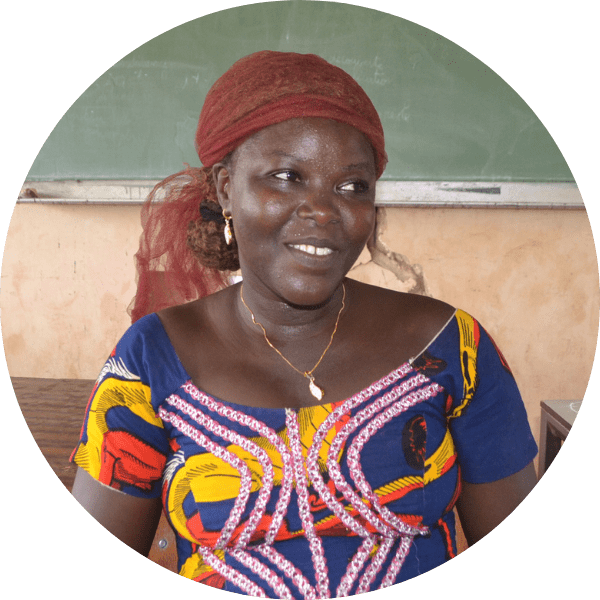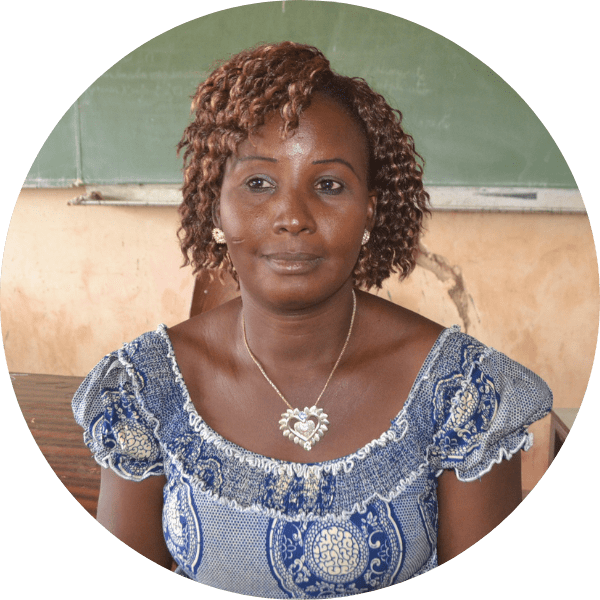Bilingual education project in Burkina Faso
Improving the quality of basic education for Burkinabe children
Since 2017, Enfants du Monde has been working both with the Ministry of National Education, Literacy and Promotion of National Languages of Burkina Faso, and with our association's local partners to improve the quality of education in a sustainable way in about 10% of bilingual public schools.
Our impact in the field
Under this support programme for bilingual public schools, between 2021 and 2024:
- 9,040 students will have access to 34 bilingual primary schools with support from Enfants du Monde ;
- 166 teachers, 34 schools directors will receive training in active teaching methodologies ;
- 30 teacher trainers will receive continuing education ;
- 170 members of schools management committees ( including parents) will receive support from Enfants du Monde.
- 94,5% of children attending the schools we support reach the final year of primary school (at national level only 56% complete their education)
Teaching in French and in the local language to facilitate learning
For nearly 20 years, bilingual primary schools have evolved in Burkina Faso to facilitate learning: classes are taught in French, the country’s official language, as well as in the local language spoken by the children of the region. Bilingual schools combine practical activities adapted to the pupils’ everyday life with content related to indigenous cultural values. They are established and run in cooperation with the local community. Finally, schooling lasts only 5 years, instead of 6 in traditional schools.
Hence, there are nearly 300 bilingual schools today. Since 2007, they have been under the supervision of the Ministry of National Education, Literacy and Promotion of National Languages of Burkina Faso. As the results achieved by such schools have progressively declined, parents and the different communities have lost some interest in them. To address this situation, the Ministry of Education has requested the support of our Swiss NGO since 2017, within the framework of its Programme d’Appui à l’Amélioration des écoles Bilingues (PAEB) aimed at improving bilingual schools.
Improving the quality of education in a sustainable way
Enfants du Monde is involved in 154 classes of 34 bilingual public schools (as per 2021 data) in 4 different regions: Central, West-Central, South-Central and Central Plateau.
Both in Geneva and in the field, our specialists work to consolidate the skills of local teams of trainers to ensure the sustainability of our work. In turn, these teams train schoolteachers, and school directors.
Our NGO is also in charge of reviewing existing school textbooks, designing quality school material (student manuals and teaching guides) and making it available. Such material incorporates aspects promoting sustainable development and children’s rights, a culture of peace and gender-equality principles.
From 2017 to 2020, during the first 3 years of the programme’s implementation, we observed encouraging results in local teaching practices.

Throughout the training we discovered that children can be taught to count, read, write, and recognise geometric figures by switching from French to the national language, Mooré. In that regard, this is a revolution in the field of learning. In our bilingual school (French-Mooré), compared to traditional schools, we have already obtained good results: in 2017, we achieved a 97% success rate in the primary school certificate exam with only 5 years of schooling, compared to 6 in traditional schools. This is an additional arrow in our quiver, to help us fight the clichés that using our languages leads to a lower-level education.
Impacting bilingual education on a wider scale
The aim of the programme implemented by Enfants du Monde is not only to improve the quality of education in bilingual schools, but also to promote this teaching approach so that it is implemented in the national education system.

I plead for the State to ensure that this approach is implemented, so that we capitalise on its achievements by introducing it at a national scale. For my part, I have planned a general assembly with the teaching community to discuss this pedagogical innovation.
By 2025, the goal is for the Ministry of Education of Burkina Faso to draw on Enfants du Monde’s principles of quality education (contextualisation, interculturality, interdisciplinarity, multilingualism and active teaching methodologies), and to use Enfants du Monde’s approach and tools as a reference. For that reason, Enfants du Monde works closely with its local partners to implement and evaluate the programme, thus facilitating the integration of this work into the national education system.
